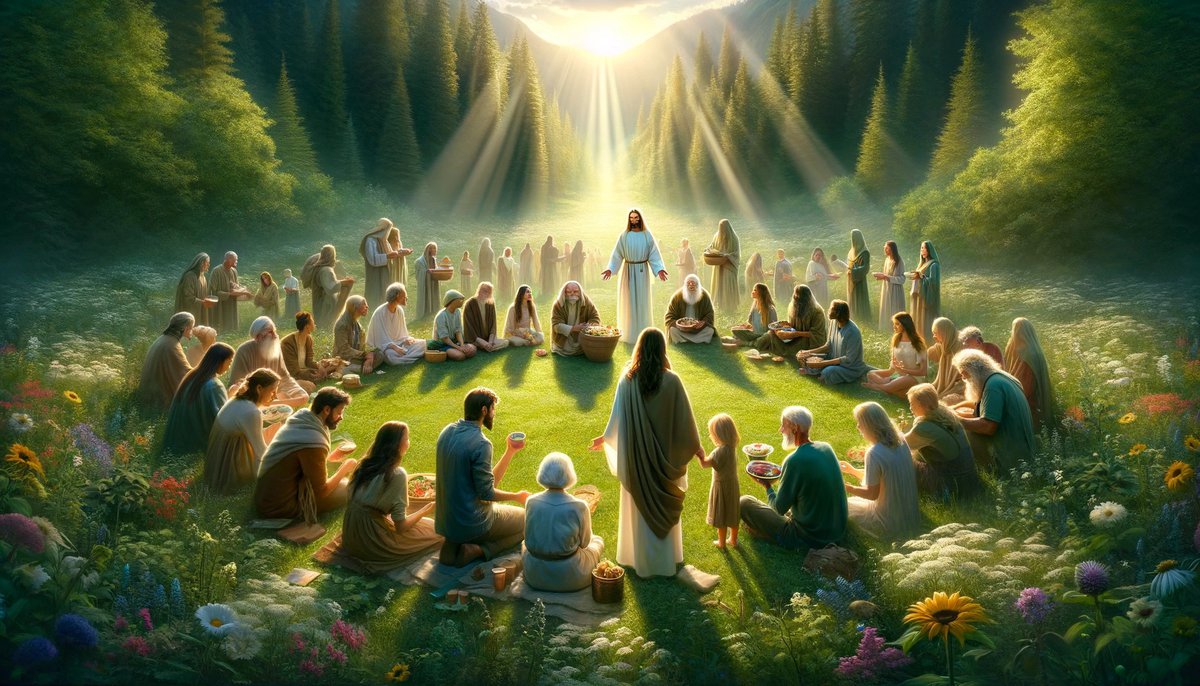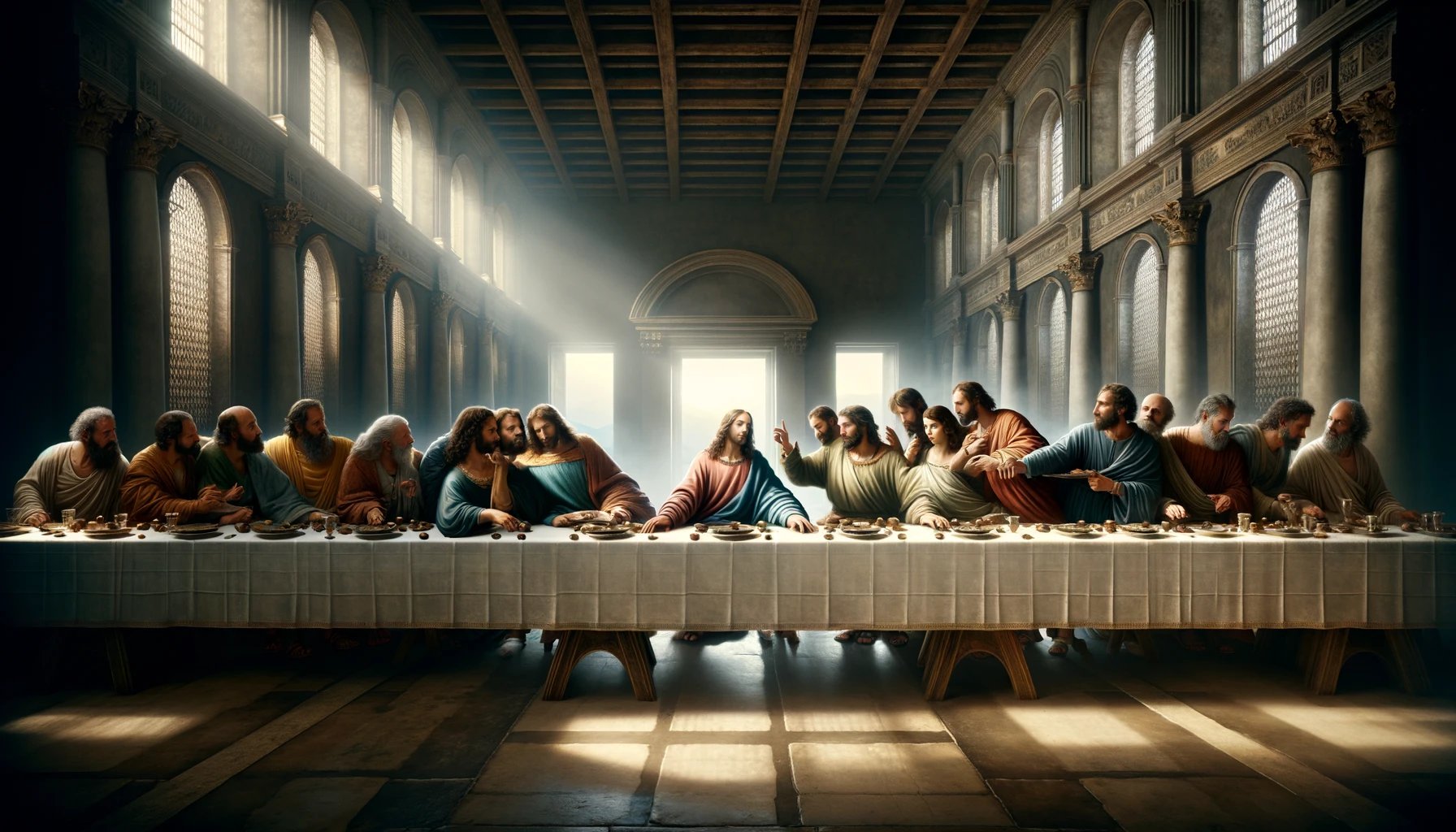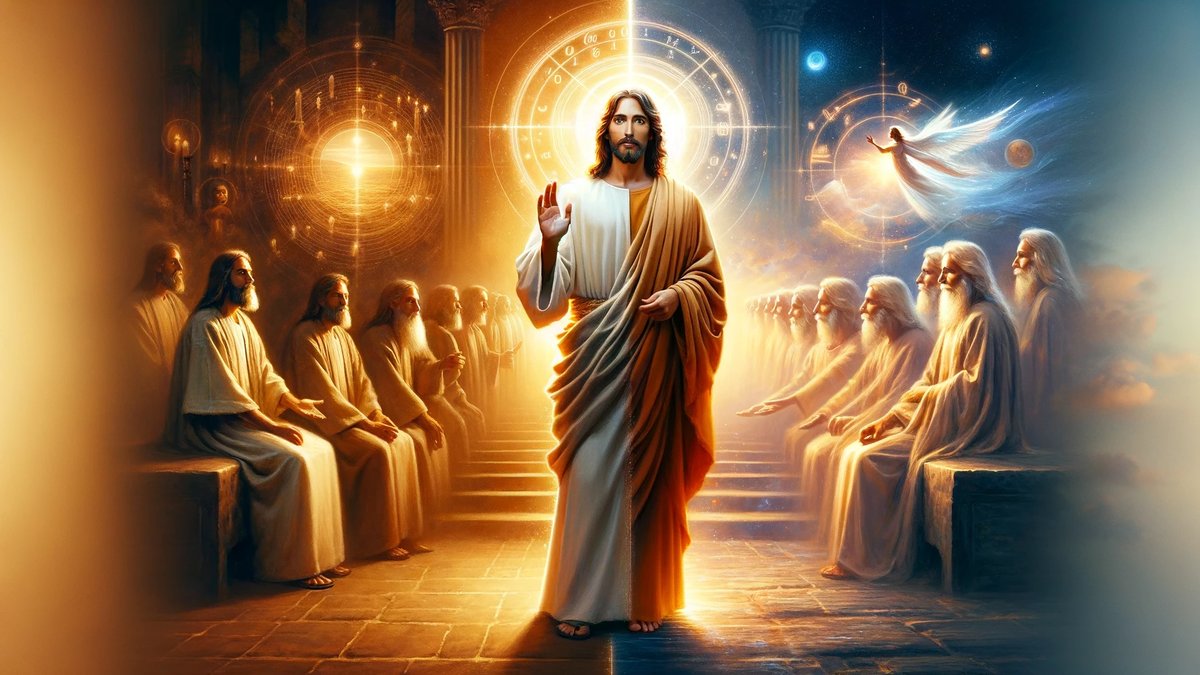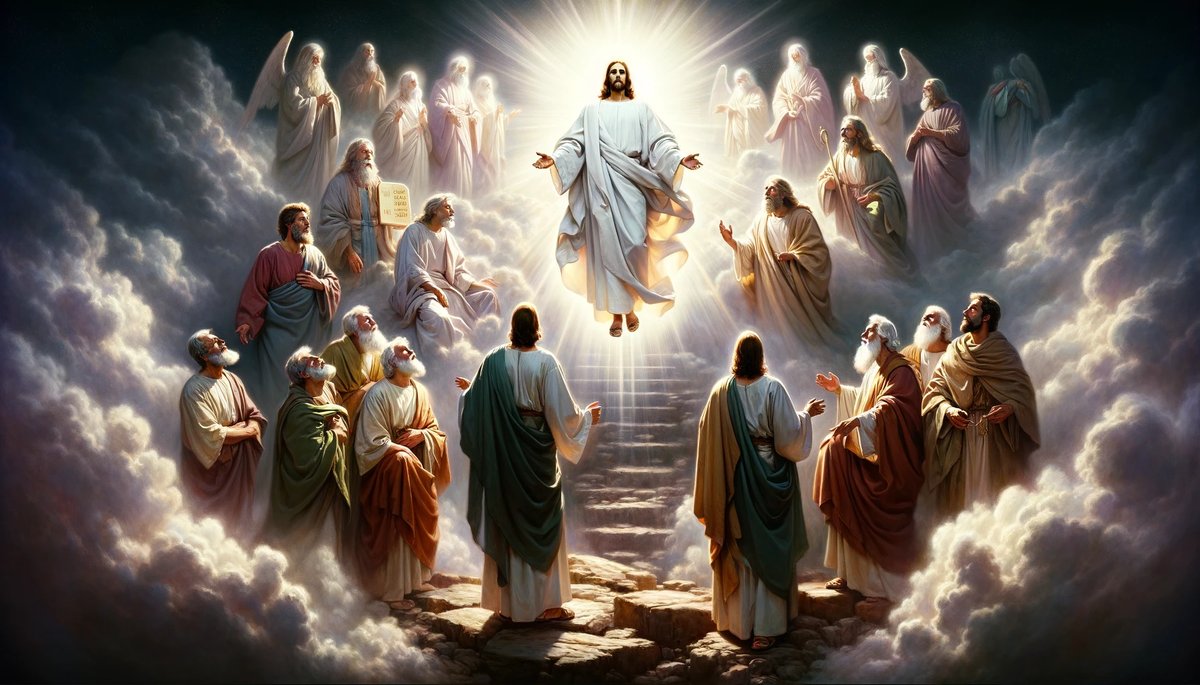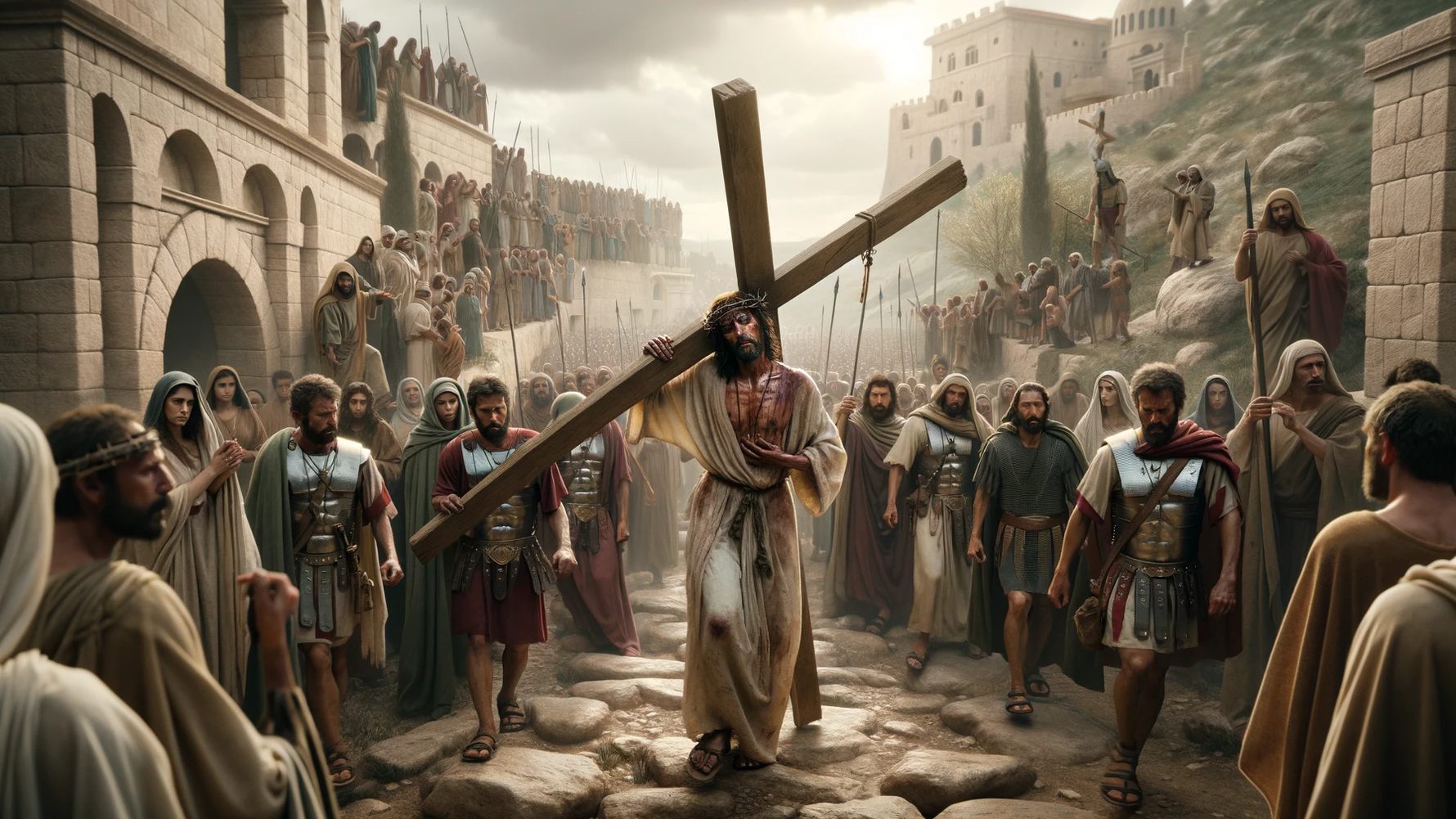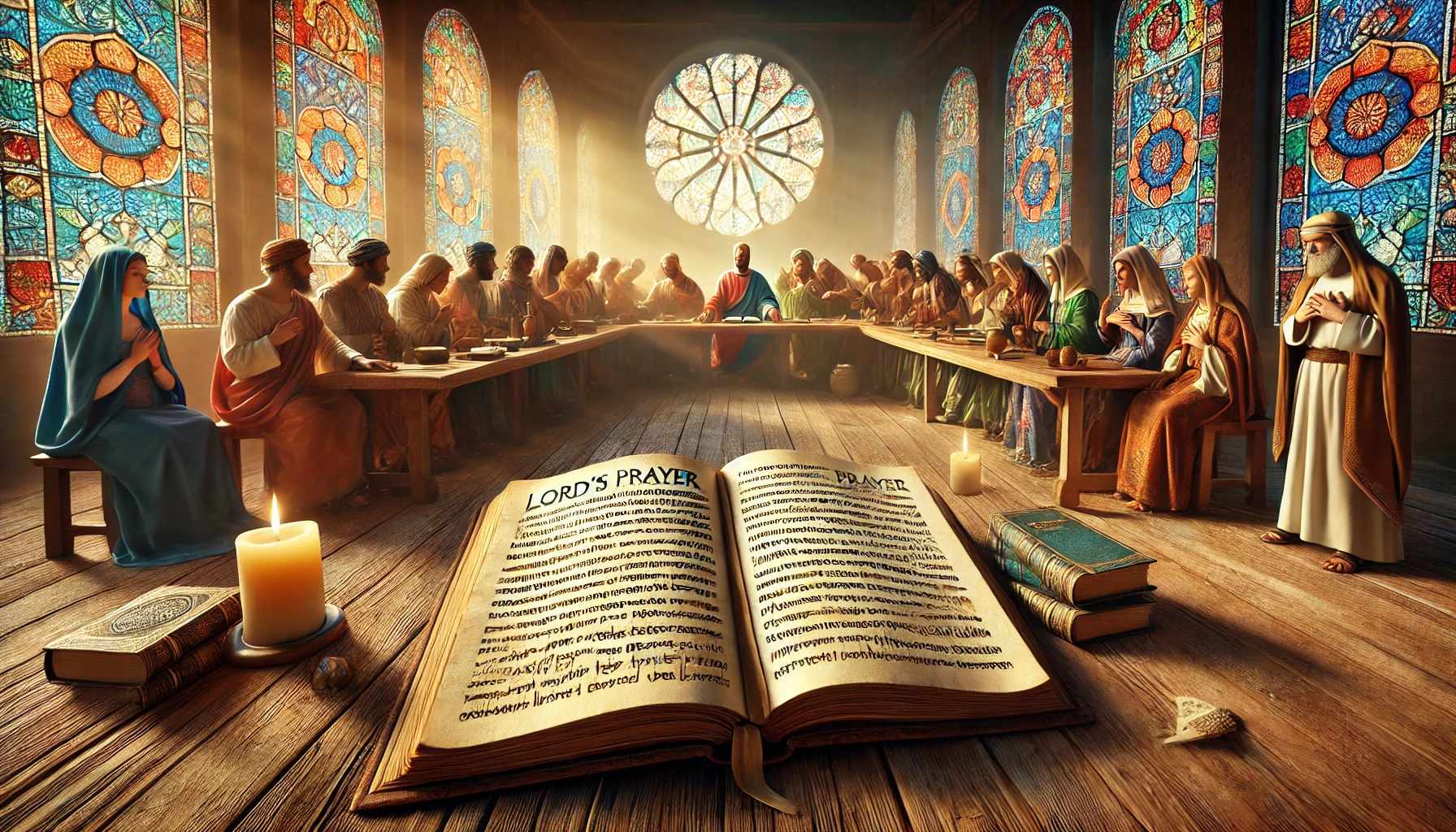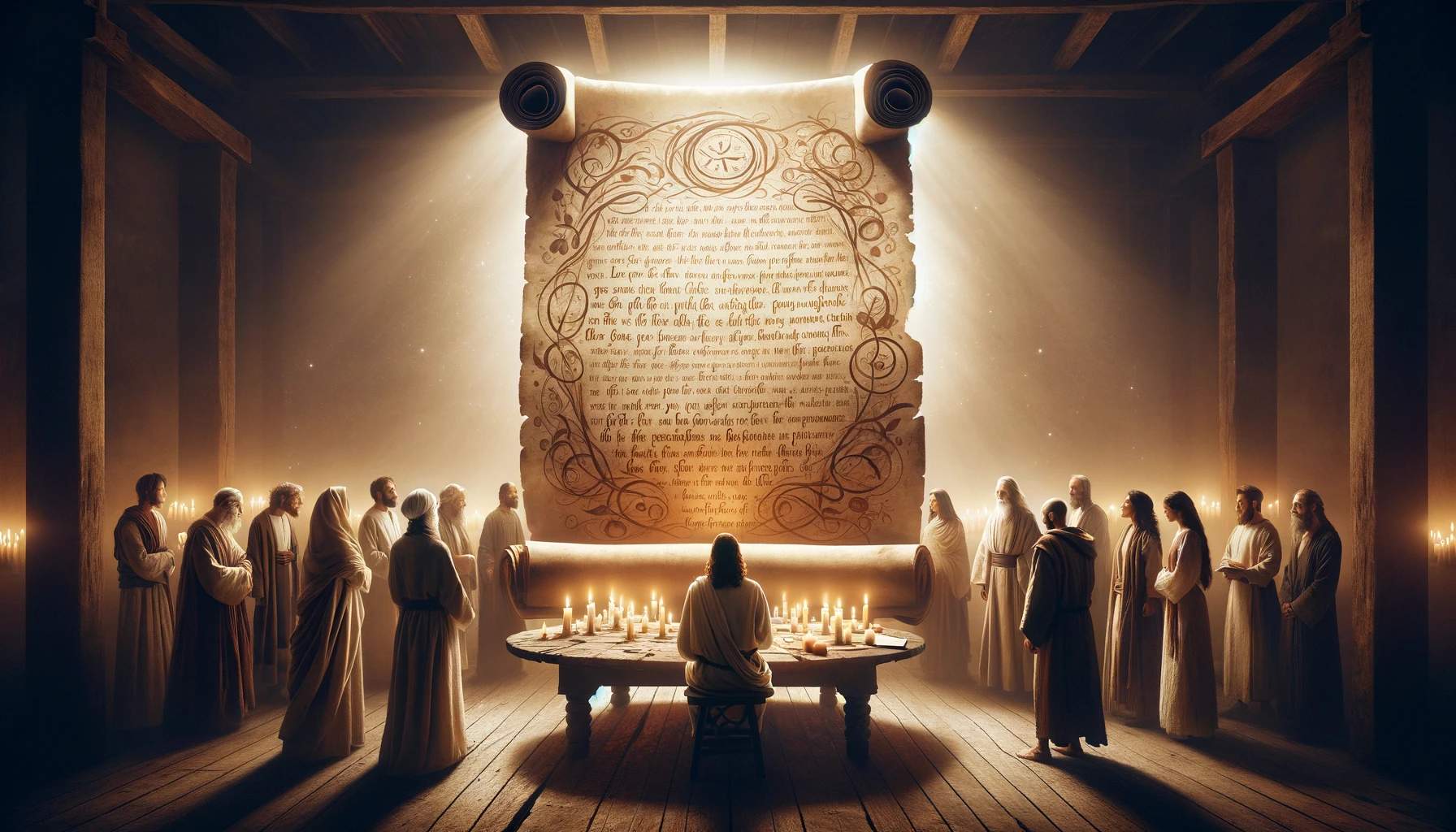Home>Christian Videos>Bible Stories>What Is The Solemnity Of Our Lord Jesus Christ


Bible Stories
What Is The Solemnity Of Our Lord Jesus Christ
Published: March 2, 2024
Peter Smith, Editorial Director at Christian.net, combines deep insights into faith, politics, and culture to lead content creation that resonates widely. Awarded for his contributions to religious discourse, he previously headed a major organization for religious communicators, enhancing dialogue on faith's societal impacts.
Learn about the significance and biblical origins of the Solemnity of Our Lord Jesus Christ in this insightful exploration of Bible stories. Discover the spiritual meaning behind this important celebration.
(Many of the links in this article redirect to a specific reviewed product. Your purchase of these products through affiliate links helps to generate commission for Christian.net, at no extra cost. Learn more)
Table of Contents
The Importance of the Solemnity of Our Lord Jesus Christ
The Solemnity of Our Lord Jesus Christ, also known as the Feast of Christ the King, holds significant importance in the Christian faith. This celebration serves as a reminder of the sovereignty and kingship of Jesus Christ over all creation. It is a time for believers to reflect on the teachings, life, and sacrifice of Jesus, emphasizing his role as the savior and redeemer of humanity. The importance of this solemnity lies in its ability to rekindle the devotion and reverence towards Jesus Christ, acknowledging him as the ultimate authority and source of salvation for all believers.
-
Reaffirming Faith: The Solemnity of Our Lord Jesus Christ provides an opportunity for Christians to reaffirm their faith in Jesus as the King of Kings and the Lord of Lords. It serves as a reminder of the unwavering power and authority of Christ, instilling a sense of hope and confidence in the hearts of believers.
-
Unity and Fellowship: This celebration unites Christians around the world in honoring the kingship of Jesus Christ. It transcends denominational boundaries, bringing together believers from various traditions to exalt and glorify the name of Jesus.
-
Reflection and Gratitude: The solemnity encourages believers to reflect on the immense love and sacrifice of Jesus Christ. It prompts gratitude for the salvation and eternal life offered through his divine grace, fostering a deeper sense of appreciation for the blessings received.
-
Guidance and Direction: By acknowledging Jesus as the ultimate authority, the solemnity provides believers with a sense of guidance and direction in their lives. It reinforces the principles of love, compassion, and righteousness exemplified by Jesus, inspiring individuals to emulate his teachings in their daily conduct.
-
Hope and Assurance: Celebrating the kingship of Jesus Christ instills hope and assurance in the hearts of believers, especially during challenging times. It serves as a powerful reminder that Christ reigns supreme, offering comfort and strength to those facing adversity.
The importance of the Solemnity of Our Lord Jesus Christ extends beyond a mere commemoration; it serves as a cornerstone of faith, unity, and devotion for Christians worldwide. This celebration reaffirms the central role of Jesus Christ in the lives of believers, emphasizing his eternal reign and unwavering love for humanity.
History and Origins of the Solemnity of Our Lord Jesus Christ
The history and origins of the Solemnity of Our Lord Jesus Christ can be traced back to the early 20th century within the Roman Catholic Church. This feast was established by Pope Pius XI in 1925 through his encyclical "Quas Primas." The primary purpose of instituting this solemnity was to emphasize the kingship of Jesus Christ in response to the growing secularism and nationalism that threatened to diminish the influence of Christianity in society. Pope Pius XI envisioned this feast as a means to reaffirm the authority of Christ over all aspects of human life and to inspire a renewed sense of devotion among the faithful.
The origins of the Solemnity of Our Lord Jesus Christ are deeply rooted in the scriptural and theological understanding of Christ's kingship. The feast draws inspiration from passages such as Revelation 19:16, which proclaims Jesus as the "King of kings and Lord of lords," as well as from the Gospels, where Jesus' teachings and actions exemplify his divine authority and sovereignty. The theological significance of Christ's kingship as the culmination of God's plan for salvation is also a foundational aspect of the feast's origins.
Furthermore, the historical context of the early 20th century, marked by political upheaval and social change, played a crucial role in shaping the establishment of the Solemnity of Our Lord Jesus Christ. Pope Pius XI sought to counter the rise of totalitarian regimes and ideologies by exalting the ultimate authority of Christ as the true source of justice, peace, and freedom. By instituting this feast, the Church aimed to offer a counter-narrative to the secular powers of the time, emphasizing the supremacy of Christ's kingship over temporal rulers and human institutions.
The historical and theological underpinnings of the Solemnity of Our Lord Jesus Christ continue to resonate within the Christian tradition, transcending denominational boundaries and inspiring believers to honor and celebrate the kingship of Jesus Christ. The feast serves as a testament to the enduring relevance of Christ's sovereignty in a world marked by constant change and challenges, reaffirming the timeless truth of his eternal reign.
Traditions and Customs Associated with the Solemnity of Our Lord Jesus Christ
-
Liturgical Celebrations: The Solemnity of Our Lord Jesus Christ is marked by grand liturgical celebrations in churches worldwide. Special Masses are held, often featuring majestic hymns and prayers that exalt the kingship of Christ. The liturgical color for this feast is typically white or gold, symbolizing the glory and majesty of Jesus as the King of Kings.
-
Processions and Parades: In many regions, processions and parades are organized to honor the kingship of Jesus Christ. Participants carry banners, crosses, and religious symbols while singing hymns of praise. These public displays of faith serve as a visible testimony to the sovereignty of Christ and attract both believers and non-believers to witness the significance of the solemnity.
-
Adoration of the Blessed Sacrament: Eucharistic adoration holds a central place in the traditions associated with the Solemnity of Our Lord Jesus Christ. Believers gather to adore the Blessed Sacrament, acknowledging the real presence of Christ and offering prayers of thanksgiving and supplication. This act of adoration underscores the belief in Christ's true presence and his role as the divine ruler of the universe.
-
Renewal of Baptismal Promises: Some Christian communities incorporate the renewal of baptismal promises as part of the solemnity's customs. This symbolic gesture allows believers to reaffirm their commitment to Christ as their sovereign Lord and King, echoing the vows made during their baptism. It serves as a profound expression of faith and devotion to Jesus Christ.
-
Feasting and Fellowship: The solemnity is often accompanied by communal feasting and fellowship among believers. Families and communities come together to share meals, expressing gratitude for the blessings bestowed by Christ the King. This tradition of communal gathering reinforces the sense of unity and joy that stems from acknowledging Jesus' kingship.
-
Charitable Acts and Service: Many Christian congregations use the occasion of the solemnity to engage in acts of charity and service. This may involve organizing outreach programs, providing assistance to the less fortunate, or participating in community projects aimed at promoting social justice and compassion. Such initiatives reflect the values of Christ's kingship, emphasizing love, mercy, and care for others.
-
Educational and Inspirational Events: Churches and religious organizations often conduct educational and inspirational events centered on the theme of Christ's kingship. These may include seminars, workshops, and lectures that delve into the theological and spiritual significance of Jesus' reign, offering believers an opportunity for deeper reflection and understanding.
The traditions and customs associated with the Solemnity of Our Lord Jesus Christ encompass a rich tapestry of faith, reverence, and celebration, serving to honor and magnify the eternal kingship of Jesus Christ. These practices not only deepen the spiritual connection of believers to their faith but also bear witness to the enduring influence of Christ as the supreme ruler in the lives of his followers.
The Significance of Celebrating the Solemnity of Our Lord Jesus Christ Today
The celebration of the Solemnity of Our Lord Jesus Christ holds immense significance in the contemporary context, offering profound relevance and meaning for believers in today's world. This solemnity serves as a powerful reminder of the enduring presence and influence of Jesus Christ as the ultimate source of hope, guidance, and salvation. In a time marked by uncertainty, division, and rapid societal changes, the celebration of Christ's kingship provides a stabilizing anchor for individuals and communities, reaffirming the timeless truths of faith and the unchanging nature of Christ's reign.
The Solemnity of Our Lord Jesus Christ holds particular significance in addressing the challenges of secularism and materialism that pervade modern society. By exalting the kingship of Christ, believers are called to reorient their priorities and values, recognizing the ultimate authority of Jesus over the transient pursuits of the world. This celebration serves as a counterpoint to the prevailing cultural narratives, inviting individuals to center their lives on the principles of love, justice, and compassion exemplified by Christ's reign.
Moreover, the solemnity offers a timely opportunity for believers to unite across diverse backgrounds and denominations, emphasizing the universal lordship of Jesus Christ. In an era marked by social and religious polarization, the celebration of Christ the King fosters a spirit of unity and solidarity among Christians, transcending differences and fostering a shared commitment to the values of the Gospel. It serves as a powerful symbol of the unifying force of faith, inspiring believers to collaborate in addressing pressing societal issues and promoting peace and understanding.
The Solemnity of Our Lord Jesus Christ also holds significance in addressing the existential yearnings and spiritual hunger prevalent in contemporary culture. In a world characterized by material abundance yet spiritual emptiness, the celebration of Christ's kingship offers a profound message of fulfillment and purpose. It reminds individuals that true meaning and fulfillment are found in acknowledging Jesus as the ultimate sovereign, guiding their lives according to his teachings, and finding solace in his eternal promises.
Furthermore, the solemnity serves as a call to action, prompting believers to embody the values of Christ's kingship in their interactions with others and in their engagement with the world. It inspires acts of compassion, justice, and service, challenging individuals to be agents of positive change and transformation in their communities. By celebrating the kingship of Jesus Christ, believers are encouraged to emulate his example, becoming beacons of light and hope in a world yearning for healing and renewal.
In essence, the significance of celebrating the Solemnity of Our Lord Jesus Christ today lies in its capacity to address the contemporary needs of individuals and communities, offering a timeless message of faith, unity, and purpose. This celebration stands as a testament to the enduring relevance of Christ's kingship, providing a guiding light in the midst of the complexities and challenges of the modern world.
